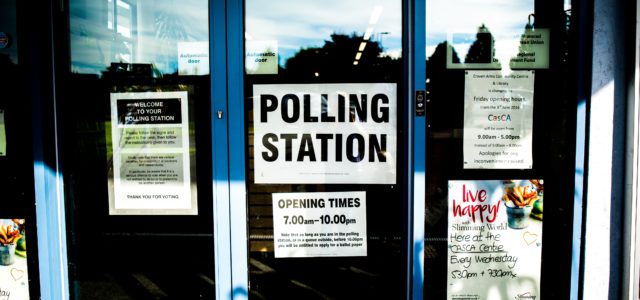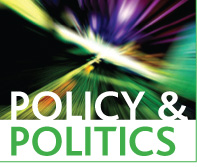Bianca Rousselot, Thomas Milic and Adrian Vatter
This section of Discover Society is provided in collaboration with the journal, Policy and Politics. It is curated by Sarah Brown.
Chances are, if you were in the “remain” and not in the “leave” camp, you probably think the referendum on Brexit should never have been called. And you probably wouldn’t be alone in that. Think back to the time when French and Dutch voters dealt a death blow to the EU Constitutional Treaty in the 2005 referendums. There were probably a good many people who thought the same thing then. As Qvortrup (2014) puts it, direct democracy “in recent years has thwarted cherished ideas and many a politician’s pet project”.
It therefore seems a very valid question whether the people, the average Joes, are actually clever and competent and informed enough to make decisions of such importance! Do they understand the questions put to them, and their implications? And, even worse, do they actually vote on these questions, or do they use referendums as “second-order elections”, i.e. substitute confidence votes to punish the incumbent government? Or do they, in fact, more often than not vote on something entirely different, e.g. “immigration” rather than “leaving the EU” in the case of Brexit? And does it matter in this context whether people can participate in a referendum once in a blue moon, or whether they have a say on issues as diverse as stem cell research, maternity leave, and bilateral treaties several times a year, like in Switzerland? But if they vote on such complicated stuff that even experts can’t agree on, how can they really have a clue what is going on?
Perhaps, to make matters easier for themselves, they simply follow the recommendations of whomever they happen to trust, be that the government, their preferred political party, or their mate down the pub. However, even if they have a preferred political party – which not all that many people seem to these days (because of social change and dealignment) – and they somehow see themselves as “left-wing”, or “liberal”, or “conservative”, how do they actually know that their own preferences on an issue at stake in a referendum align with the preferences of their preferred party, or even their own general, fuzzy ideology? Even if people are able to place themselves somewhere on the political spectrum from left to right, that doesn’t mean that they know where to place a referendum issue on the same spectrum, or that it actually can be placed there.
So if folks simply do follow recommendations, is that a good thing or a bad thing? Are such “information shortcuts” or “heuristics” a helpful means of making rational decisions without wasting too much time on information gathering? Or do we find ourselves in the same situation here as the hurried driver whom the “shortcut” leads anywhere but the destination? In other words, does the use of “heuristics” lead to a distorted outcome of the aggregate vote that actually is against the voters’ “true” interests?
And think about this: If people generally tend to use cognitive shortcuts, what impact does new information have on their opinions and decisions? Do people actually process and accept new information – and if they do, from what sources? And do they do so even when new or more accurate information contradicts the beliefs they already hold? Does new and challenging information break into their social media bubble, and if it does, does it matter whether it’s fake news, so common in times of post-factual politics? Imagine you’re a “right-wing” voter and supporter of a “right-wing” political party. What newspapers and websites do you read? What news programs do you watch? Whom do you follow and befriend and talk to on social media platforms, or in brick-and-mortar pubs?
Imagine, then, you are supposed to vote on a referendum on, say, “immigration”. Perhaps, almost certainly, you already hold some general opinion, maybe even strong beliefs on “immigration”. And perhaps, very likely, you know what your preferred party’s stand on the issue is. Imagine, then, you somehow come across an article detailing the latest statistics showing a decline in immigration, or the potential negative economic effects the bill on immigration you are supposed to vote on might have. Or you come across an opinion piece arguing the ethical side in the immigration debate. What do you do with this information? Do you even read it? Process it? Believe it? Let it sway you? Or are your pre-existing predispositions so strong that all this new information has no impact at all? Incidentally, replace “right-wing” with “left-wing”, and you could talk about the same effects.
In the end, you could ask yourself, do referendum outcomes not simply go to the highest bidder anyway? I.e. the player in the game who has the most resources for campaigning, putting spins and real or fake information out there, or analyzing people’s social media-generated data for target advertising? But wait a minute – given what we just heard, can campaigns actually really influence voters to vote against their own interests, i.e. incorrectly? Think back to the EU integration votes in the early 1990s and 2000s, when Denmark repeated the referendum on Maastricht (1992 and 1993) and Ireland repeated both the vote on Nice (2001 and 2002) and Lisbon (2008 and 2009), each time reversing the outcome. Which of the outcomes was the “correct” one in each case? The first ‘no’ vote, or the second ‘yes’ vote? And why were the outcomes different the second time round? Did people change their minds? If yes, why? Was there suddenly new or different information available? Was there more of a campaign effort on the “yes”-side the second time round? Or was it a question of turnout? Did more people participate the second time, or less, or other people?
Regarding turnout, wouldn’t it be better if less people participated, i.e. only those who really have a clue about what’s going on? You could say that output legitimacy would certainly be higher then. But what about representativeness, or input legitimacy? What would it mean if only those people with a higher education or income participated, because everybody else couldn’t be bothered? Or what if, for instance, mostly those above 50 participated, out of interest, or a sense of duty, and those below 30 stayed at home, even if the vote strongly impacted on their future? What would that do to our perception of legitimacy? Shouldn’t all people have a say, really? Isn’t that the whole idea of direct democracy? But who actually decides what people can vote on, and when? Why can and does the government call a referendum on certain issues, but not on others? Who has the agenda setting power here, and what effects does that have? Does it make a difference whether the government can call a referendum at its whim, perhaps because it wants to strengthen its position vis-à-vis the opposition in parliament, or whether a referendum is launched by the people, or a parliamentary minority, according to a fixed set of rules, or is automatically triggered because of some constitutional provision?
And whoever launches a referendum, if you make all that fuss, and people decide, shouldn’t what they decide be binding? Maybe that depends on where people think sovereignty lies. Is it ultimately in the hands of the people, or their elected representatives, the parliament? And what about the constitution, and international law and all that stuff? Can the people decide on something that contradicts these? If they can’t, or if what they decide isn’t implemented in the end, what does that do to citizen attitudes towards democracy? “Whatever I vote, nothing changes anyway”, doesn’t sound very reassuring, does it? But if people have all that power and can vote on almost anything they like, as in Switzerland, what does that do to the economy, or taxation? Wouldn’t people just vote for increased income redistribution, Robin Hood-style? Or would they just lower their own taxes? And in the end, wouldn’t this all not just lead to mob rule, or a tyranny of the masses, because they are all egoists, and xenophobic ones at that?
Why do people vote the way they do, in the end? And shouldn’t they better refrain from “political back-seat driving”, as Caleb Crain puts it, and leave these complex decisions to their better informed and better qualified representatives? – And yet, if you think about buzzwords like “democratic demise”, “democratic deficit”, “democratic recession” (Hug 2002, Wagschal 2007, Diamond 2008, Mair 2013) or “Politikverdrossenheit” (political apathy) which have been around for a while now, also due to a perceived disconnect between voter preferences and policy decisions, is representative democracy really so much better, or are there reasons why direct democracy has become more and more popular, and more and more relevant, worldwide?
Fortunately, all these questions have been empirically addressed in the literature on direct democracy. However, important research gaps remain. In our recent research published in Policy & Politics, we provide a state-of-the-art analysis of the field of direct democracy. Based on this analysis, we develop a research agenda highlighting the most important stumbling blocks and stepping stones in the research to date and make a range of theoretical, empirical and normative recommendations to advance the field of study. Trust us – we’re Swiss. We know what we are talking about.
References:
Diamond, L, 2008, ‘The Democratic rollback: The resurgence of the predator state’, Foreign Affairs, March/April.
Hug, S, 2002, Voices of Europe: Citizens, referendums, and European integration, Lanham, MD: Rowman & LittlefieldMair 2013.
Qvortrup, M, 2014, ‘Introduction: Theory, practice, and history’, in M Qvortrup (ed) Referendums around the world: The continued growth of direct democracy, New York: Palgrave.
Wagschal, U, 2007, ‘Direktdemokratie und europäische Integration’, in M Freitag, U Wagschal (eds) Direkte Demokratie, Bestandsaufnahmen und Wirkungen im internationalen Vergleich, Berlin: Lit.
Bianca Rousselot researches Elections, Public Opinion and Voting Behavior and Comparative Politics at the Institute of Political Science, Universität Bern. Thomas Milic is member of the Institut für Politikwissenschaft at the University of Zurich. Adrian Vatter is professor of political science (Swiss politics) at the Institute of Political Science, University of Bern, Switzerland.

